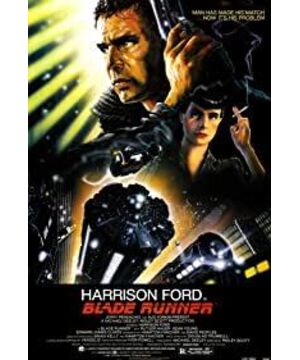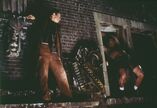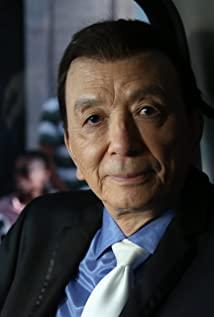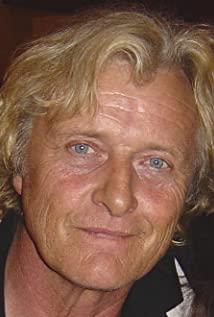-------------------------------------------------- ------------------------------
I. More Human than Human The
most interesting film is undoubtedly the one that passed the "Empathy Test" (Empathy test) "The Voight-Kampff instrument to determine whether the subject is a replicant (artificial human), by testing the subject's respiration, blushing response, heart rate, and pupil contraction under external stimuli to determine whether it has humanity" The ability to empathize, or in other words, whether it has "humanity". This weird thing similar to a polygraph is the original Do Androids Dream of Electric Sheep? author Philip Dick made up based on the principles of the Turing Test.
The Turing test says that if a person uses any set of questions to ask two objects that he cannot see: one is a normal thinking person; the other is a machine. If he can't draw a substantial difference after several questions, then he will It can be considered that the machine already possesses human intelligence. What's interesting is that in Canada in the 50s and 60s, a similar machine (named "Fruit Machine") was indeed used by the Royal Police, but the purpose of the test was not to retire artificial humans, but to retire (or fire) Canada. Gays. In the film BR, Rachael answered a question from Deckard's test: "Is this testing whether I'm a replicant or a lesbian, Mr. Deckard?", which is quite ironic.
The design of the problem is worthy of careful examination. Whether it was Holden interrogating Leon at the beginning of the film, or Deckard testing Rachael later, most of the questions were surprisingly related to animals, such as:
"It's your birthday. Someone gives you a calfskin wallet. How do you react?"
"You've got a little boy. He shows you his butterfly collection plus the killing jar. What do you do?"
"You're watching television. Suddenly you realize there's a wasp crawling on your arm."
"You're in a desert walking along in the sand when all of the sudden you look down, and you see a tortoise, it's crawling toward you. You reach down, you flip the tortoise over on its back. The tortoise lays on its back, its belly baking in the hot sun, beating its legs trying to turn itself over, but it can't, not without your help. But you're not helping. Why is that?"
These questions are set up to detect the so-called innate human emotions such as likes/dislikes, compassion/cruel, jealousy/tolerance and so on. However, because artificial humans only set up specific types of work during production, they can only accumulate limited human emotions in their four-year short life, so they cannot subconsciously show corresponding physical responses when answering questions like humans. Under such assumptions, all cyborgs will be found flaws by Blade Runner within N questions.
However, the fact is not so simple. Due to fear of replicant forming self-emotion, the life of all NEXUS-6 (the sixth generation of artificial humans) is preset to 4 years. However, some replicants (especially Mental Level A) have begun to have human emotions, and like all human beings at home and abroad, like the "God" who created them, they seek one of the most basic and primitive requirements: life.
After Batty’s remote control of Sebastian and Tyrell played a two-step "Immortal Game" (the immortal battle between Adolf Anderson and Lionel Kieseritzky in 1851), Batty finally saw his producer, his "father", His "God"-Tyrell. As Tyrell said, "The light that burns twice as bright, burns half as long." As a leader of the sixth generation, Batty has an extremely radiant and magnificent life, but it is also a life of suffering and enslavement; now he just wants to be plain Life, passionate love, like all ordinary human beings. This "not excessive" spark-like desire was abruptly poured out in the ice and water from the sky, and despair caused him to destroy his maker. After the last confession to "God", he can be sure: "Nothing the god of biomechanics wouldn't let you in heaven for."
Facing the tragic death of his lover Pris, I believe that every "human" will kill the murderer without hesitation and pay for the blood with blood. But no matter whether you are upright in the cat-and-mouse game with Blade Runner Deckard, or finally pull out the willows and rescue the opponent before the fall of the "line of sky" opponents, the robot Batty does not look like normal humans in any way. There is no unique "humanity" held by human beings full of superiority: he is too benevolent, too respectful of life, too lacking "humanity"; what he lacks is cruelty, destruction, and "humanity".
The winter rain in Los Angeles fell like a blade on his pure and tender, blood-stained face, and the "hero" Deckard was shocked and confused on the opposite side. "I've seen things you people wouldn't believe. Attack ships on fire off the shoulder of Orion. I watched C-beams glitter in the darkness at Tannhäuser Gate. All those moments will be lost in time, like tears.. in rain. Time... to die." The white dove flew out of the nailed right hand, the soul split out of the imprisoned body, and flew to the blue sky, the blue sky blooming in the night.
Eternal moments pass by a little time, like tears of lovesickness into the late autumn rain.
-------------------------------------------------- ------------------------------
II. Memories! You're talking about memoires!
Deckard once said that he usually needs 20-30 reference questions to detect human beings, but he actually asked more than 100 questions on Rachael. The reason is as follows: When Terell discovered that the sixth generation of artificial humans will gradually develop self-emotions and resist this fatal bug with constant experience, he began the next experiment, which is to transplant the memory of a real person into the artificial human’s brain. The lifelike "memory" convinces the human beings that they are ordinary "human beings", and can develop emotions based on the experience, thus avoiding doubts and confusions from spreading like a rootless tree. Racheal is the experiment of the seventh generation of humanoids, and she was infused with the memory of Tyrell's niece.
So when Rachael is convinced that she is the girl in the photo, she can do one hundred or ten thousand test questions without failing, but once she starts to doubt the identity of the artificial person, she will behave abnormally.
This raises a question: Is Deckard himself a human being? Although his piano stand is filled with old photos carrying "memory", we can still safely say that he is indeed a replicant. The clues are as follows:
(1) The unicorn in the dream was finally known by Gaff (room The remaining unicorn origami), the most full proof that he, Deckard, is also a human being, and the unicorn is one of the memories that has been injected.
(2) When Batty on the roof died, Gaff walked up and said: "You've done a man's job, sir." Pay attention to this "man's job", what is the metaphor? (At the same time, this sentence is ironic after Deckard was almost teased by Batty and even his life was saved by the enemy)
(3) When Deckard was beaten up by Leon in the street, Leon asked him: "How old am I?"---"Four years" Then Leon said "More than you! Painful to live in fear, isn't it?" It implies that Deckard gave birth later than Leon and also lived in fear. Batty back to Deckard in the hanging wooden said again: "Quite AN preference Experience to Live in Fear, IT IS That's not to the What IS IT BE A Slave?."
(4) In the nick Batty caught the falling moment Deckard , He said "Kinship!" indicating that he should know that they are all of the same kind.
(5) Throughout the filming process, it can be seen that Deckard is very afraid of Sheriff Bryant, and its ambiguous threat seems to imply that Deckard is a human being.
(6) Rachael once asked Deckard: "Did you ever take that test yourself? Deckard?", which is also a hint.
This concept of memory being "made" and human beings controlled was carried forward in the later Matrix, but we can also ask ourselves the questions in the play: "Who are we? Where do we come from?" Perhaps these topics are in Kubrick's 2001. : A Space Odyssey gave more penetrating questions and crazier problem-solving ideas. In any case, the authenticity of memory and the credibility of life are always worthy of our inquiry.
In addition, Gaff’s identity is mysterious and concealed. It is a cityspeak in the cloud and fog. No one knows his background and role. His three handicraft works are profound and timeless:
(1) The chicken folded in the police station is Alluding that Deckard is a "little man" without the right to choose? Or is Deckard cowardly afraid to retire replicant?
(2) A standing stickman (male), implying that he already knew that Rachael had found Deckard?
(3) It is very clear that the origami unicorn is a message: I know that you are also a human being, I have been here, I let you two.
-------------------------------------------------- ------------------------------
When Deckard and Rachael drove their aircraft across Terell, which was splendid and dazzling like the Aztec Pyramid As the headquarters drove to the north, the fantasy free background music seemed to pass through the ears of the solo in Shine on your crazy diamond of Pink Floyd, like the water of long waves. Will they get eternal life? Will they leave real memories?
Remember when you were young, you shone like the sun.
Shine on you crazy diamond.
Now there's a look in your eyes, like black holes in the sky.
Shine on you crazy diamond.
You were caught on the cross fire of childhood and stardom ,
blown on the steel breeze.
Come on you target for faraway laughter, come on you stranger,
you legend, you martyr, and shine!
-------------------------------------------------- ------------------------------
Note: A magazine reporter conducted a Voight-Kampff campaign on the 6 candidates for the mayor of San Francisco. Test, the results are amazing! Some candidates turned out to be cyborgs! For details, please visit:
http://www.thewavemag.com/pagegen.php?pagename=article&articleid=24031
View more about Blade Runner reviews











